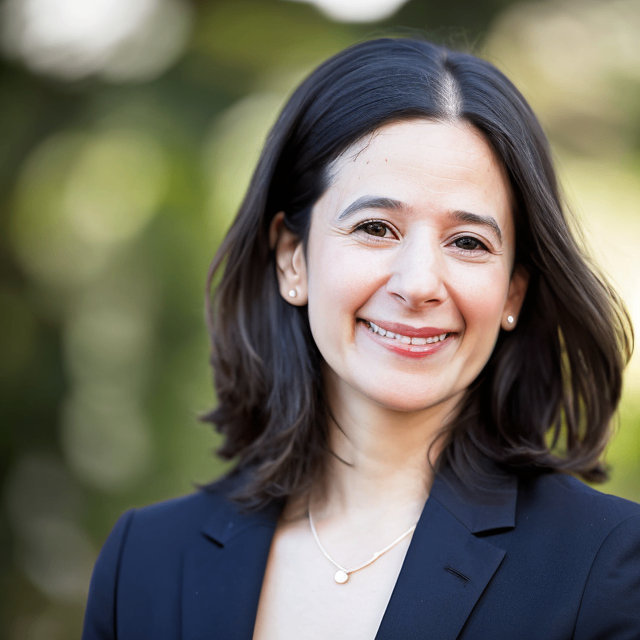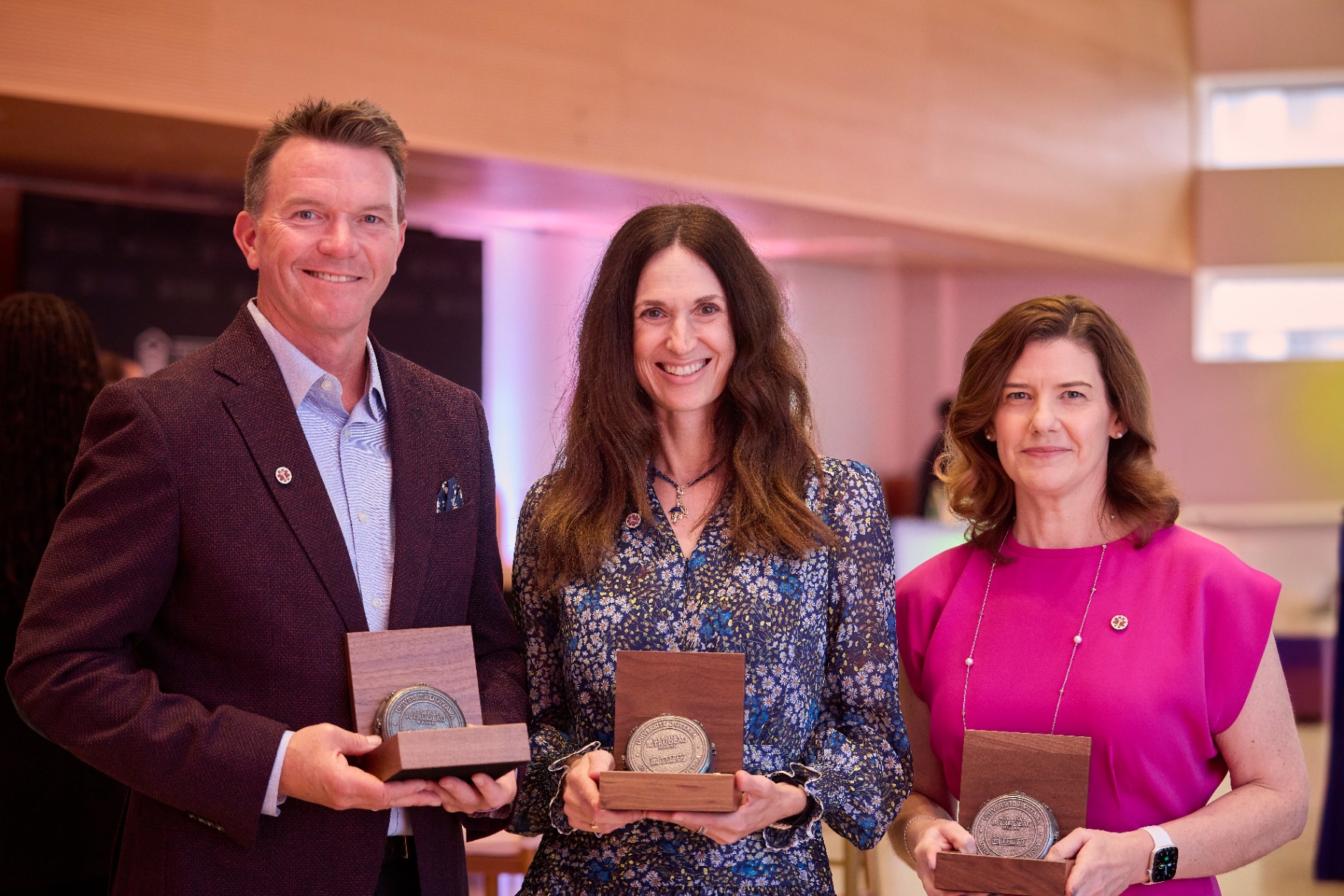When Dr. Amanda Selk reflects on her career, one theme keeps coming back: the drive to improve women’s health. What started as a passion for clinical care in obstetrics and gynecology has grown into something larger — a career that blends medicine, teaching, research and health system leadership.
Her path has taken her from medical school lecture halls to busy delivery wards, and from overlooked areas of women’s health to leadership positions on national and international boards. Today, she works as a professor at the University of Toronto, leads programs at two major Toronto hospitals and holds a Canada’s Most Powerful Women: Top 100 Award for 2024 from the Women’s Executive Network.
At the centre of this evolution sits a decision that reshaped her perspective: enrolling in the Executive Master of Health Administration (EMHA) at the Telfer School of Management.
A career rooted in advocacy and care
Dr. Selk’s journey began at the University of Toronto, where she completed her bachelor’s degree before pursuing medical school at the University of Western Ontario. She returned to Toronto for her residency in obstetrics and gynecology. During that time, she found herself drawn to both ends of the spectrum: the joy of childbirth and the complexity of under-recognized health issues.
“Birth is one of the most important moments in people’s lives,” she says. “It’s an incredible privilege to be part of that. But I was also struck by the conditions in women’s health that weren’t getting the attention they deserved.”
That curiosity led her to pursue further training in vulvar dermatology, a subspecialty that has since become a defining part of her clinical and academic career.
Her work quickly expanded across institutions. At Mount Sinai Hospital, she built a thriving obstetrics practice. At Women’s College Hospital, she developed and led colposcopy and vulvar health programs, later becoming chair of the Medical Advisory Committee. Alongside this, she earned a master’s in health research methodology at McMaster University, giving her a solid foundation in epidemiology and research design.
Selk also built a reputation as a mentor and educator. She has trained medical students, residents and fellows, and even established one of the first vulvar health fellowships. She has published widely, collaborated internationally and assumed leadership roles in the Society of Canadian Colposcopists, the International Society for the Study of Vulvovaginal Disease and the International Federation of Cervical Pathology and Colposcopy.
In 2025, the University of Toronto recognized her academic and clinical contributions by promoting her to full professor.
Recognizing the limits of clinical excellence
Even with a successful practice and growing influence, Selk saw a gap she needed to fill. Clinical excellence mattered deeply, but she began to see that patient outcomes were often determined by the system around them — access, policies, funding and leadership.
“I realized that excellent care at the bedside isn’t enough if the heath-care system itself doesn’t support patients,” she says. “I wanted to be able to influence not only what happens in the clinic but also the decisions and structures that shape access and quality.”
That realization inspired her to pursue the EMHA at Telfer.
Why the Telfer EMHA?
The EMHA offered a few things she couldn’t find elsewhere. Unlike a traditional MBA, it was designed specifically for health-care leaders. Its flexible online structure meant she could continue practising and teaching while studying. And as part of the very first cohort, she would help shape the program, giving her feelings of both excitement and responsibility.
Her classmates came from across the health-care spectrum: pharmacists, nurses, data analysts, physiotherapists and an optometrist. That mix of perspectives made every discussion richer.
“Those conversations changed how I thought,” Selk explains. “We all had a shared commitment to patients, but our day-to-day realities were so different. Hearing how others approached challenges opened my eyes to the system in a new way.”

Lessons in health-care leadership
For Selk, the program’s greatest value was in the leadership skills it provided. Courses on governance, strategy and especially change management were directly applicable to her roles.
“The change management course still shapes how I approach tough situations,” she says. “It gave me frameworks I could put into practice right away when leading through transitions.”
The EMHA also emphasized self-reflection, something she hadn’t expected but now considers essential. “Leadership isn’t a destination. It’s a process of growth,” she says. “That realization gave me the confidence to step into bigger roles.”
Becoming chair of the Medical Advisory Committee at Women’s College Hospital was one clear example her taking on bigger roles. The program gave her the skills and the confidence to lead at a system level.
Building a community of health leaders
The program also created lasting relationships. Many people in her cohort became close colleagues and friends. For a leader who splits her days between research, teaching and patient care, that sense of community has been invaluable.
“Being part of the first cohort made it feel like we were building something together,” Selk says. “The friendships and professional connections are still a big part of my life.”
Looking ahead
Selk’s goals for the next five years build on the balance she’s always sought between patient care, academic work and system change. She wants to keep advancing vulvar health care, expand mentorship opportunities for trainees and shape health-care policy and leadership.
She sees the EMHA as a foundation for all of this. “It gave me the tools to turn expertise into impact,” she explains. “It bridged the gap between knowing what needs to change and having the confidence and ability to make it happen.”
Advice for future health-care leaders
Her advice for health-care professionals considering the EMHA is clear: don’t see it as just another credential.
“It’s more than a degree. It’s a catalyst,” she says. “It equips you with leadership and strategy skills, but it also gives you confidence — the confidence to see the system differently, to take on new roles and to lead change with purpose.”
And perhaps just as important, she adds, is the network: “The friendships and professional connections you build are lasting. They support you as much as the academic side.”
Closing reflections
Selk’s story shows what’s possible when a physician looks beyond the bedside. She remains deeply committed to patients and to women’s health, but the Telfer EMHA gave her the tools to influence the system around them.
Her journey is a reminder that health-care leadership happens in many places: delivery rooms, clinics, classrooms and boardrooms. For Selk, her work has always been about advocacy, education and system improvement. The EMHA simply gave her the language, the tools and the confidence to take that vision further. The future of our health-care system is brighter and stronger with leaders like her at the helm.
Explore the Telfer EMHA program to see how it prepares leaders to shape the future of health care, or speak with a recruiter today.







